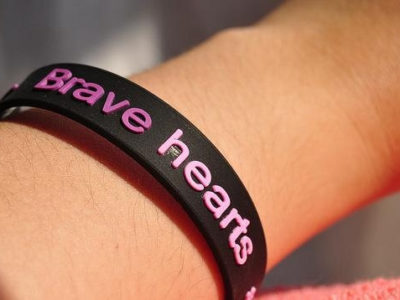Claire Larson* considered herself a healthy college sophomore. As an avid runner and bicyclist, Larson kept a balanced diet and enjoyed life to the fullest at Northern Michigan University.
After her pap smear that year, Larson wasn’t worried – but about a week later, she received an unexpected phone call from her doctor: she had abnormal cells on her cervix caused by the Human Papillomavirus (HPV) and needed to come in for further testing.
Larson scheduled an appointment soon afterward, where doctors informed her she had a strain of HPV associated with cervical cancer.
“I thought I was going to die of cancer,” said Larson. “I felt like I’d be considered weird or never find anyone to be with again.”
Larson isn’t alone. According to the National Cervical Cancer Coalition, cervical cancer affects approximately 10,000 women in the United States each year, and is the second most common type of cancer for women worldwide. The cancer stems from strains of HPV, which is becoming one of the most common sexually transmitted infections, especially prevalent among young adults.
“There’s a big increase in HPV. I just consider HPV a fact of sexual life: if you’re sexually active, you’re going to get HPV,” said David Shahbazi, M.D., a physician on staff for 20 years with Marquette General Hospital in Michigan.
There are over 100 strains of HPV, yet only four strains cause the majority of symptoms: strains 6 and 11 cause approximately 90 percent of genital wart cases, and strains 16 and 18 instigate about 75 percent of all cervical cancer cases.
Larson had strain 16, and because of the affiliation with cervical cancer, doctors performed a colposcopy on her, taking a sample of cervical tissue and examining it in a lab for abnormal cell formation. Having the abnormal cells put Larson in a position of possibly needing a Loop Electrosurgical Excision Procedure (LEEP) someday, a surgical procedure that permanently removes a piece of the cervix. In advanced cases, where patients do develop cervical cancer, a hysterectomy or even chemotherapy is needed.
But cervical cancer doesn’t happen right away. HPV often shows no symptoms for months, or even years. When a woman contracts one of the cancerous types of HPV, the virus infects the cervical tissue, and begins to manifest. This causes the cells on the cervix to grow abnormally, which is when doctors are able to determine a woman has a cancerous HPV strain.

“The difference between normal and cancer isn’t a line. There’s a continuum of cells that get more and more abnormal until eventually its cancer,” said Shahbazi.
It is recommended that all sexually active females schedule annual pap smears. These regular, painless checkups can screen and detect cancerous HPV strains early on, and prevent any further abnormal cell growth. A woman already diagnosed with a cancer causing HPV strain, like Larson, should be especially vigilant about annual pap smears.
“The people that get cervical cancer are typically people who have an abnormal pap smear, but they never come back again,” said Shahbazi. “Cervical cancer is felt to be almost a completely preventable cancer if you do what you’re supposed to do.”
It is also recommended that girls and women ages 9 to 26, sexually active or not, be vaccinated with Gardasil, the only vaccine which protects against the four main strains of HPV. Even if a woman already has HPV, vaccination will protect against the other strains she doesn’t have, as it is unlikely for her to be infected with all four strains.
For Larson, who now has a young daughter and is expecting her second baby later this year, the threat of cervical cancer no longer scares her. She continues to be pro-active about her HPV with routine gynecologist checkups and careful monitoring. By keeping close tabs on her cervical cell condition, doctors are confident she will continue to live cancer free.
“Luckily, my body has good little fighters,” said Larson. “Right now I’m just trying to stay as healthy as possible.”

















